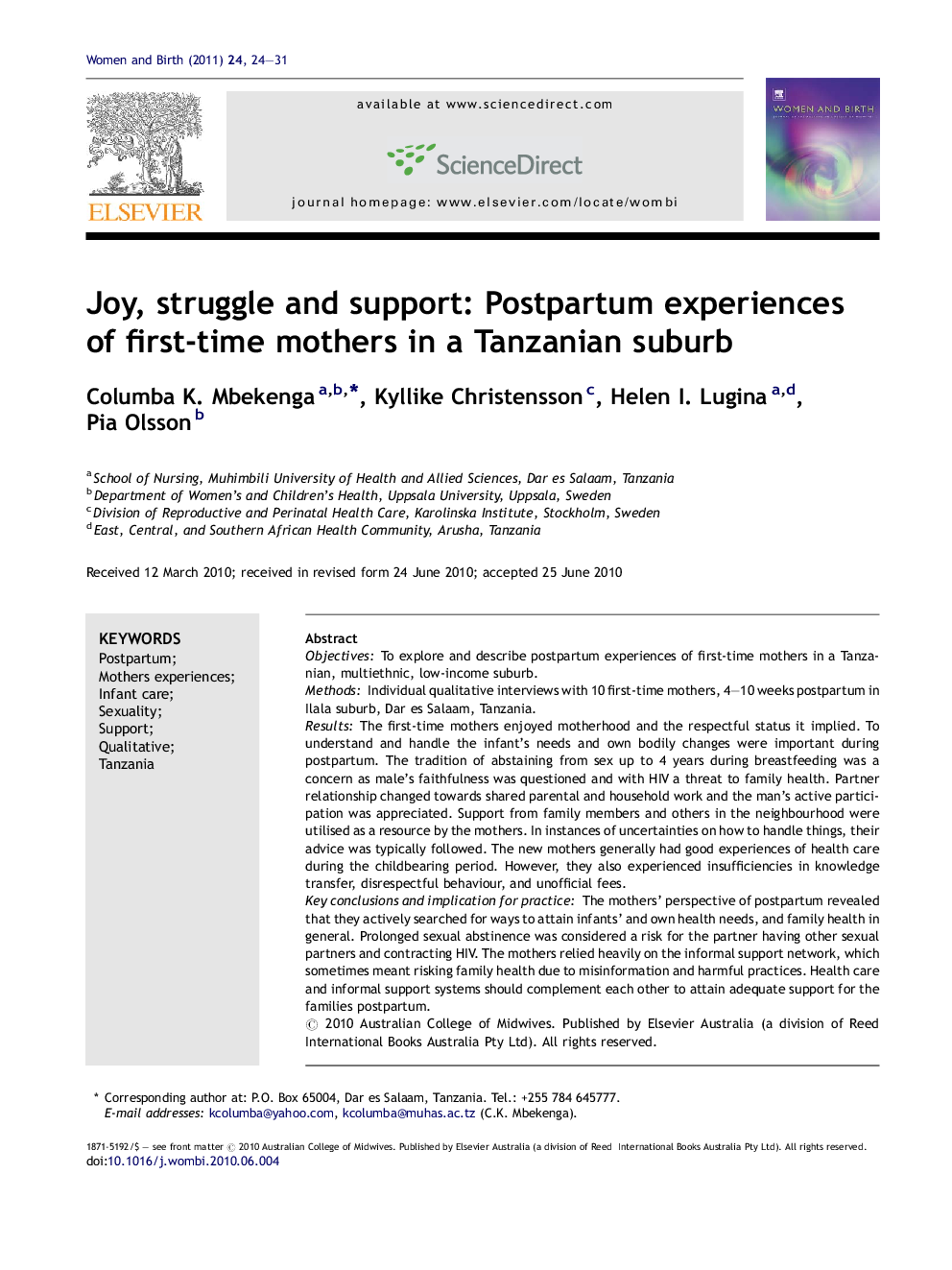| Article ID | Journal | Published Year | Pages | File Type |
|---|---|---|---|---|
| 2636761 | Women and Birth | 2011 | 8 Pages |
ObjectivesTo explore and describe postpartum experiences of first-time mothers in a Tanzanian, multiethnic, low-income suburb.MethodsIndividual qualitative interviews with 10 first-time mothers, 4–10 weeks postpartum in Ilala suburb, Dar es Salaam, Tanzania.ResultsThe first-time mothers enjoyed motherhood and the respectful status it implied. To understand and handle the infant's needs and own bodily changes were important during postpartum. The tradition of abstaining from sex up to 4 years during breastfeeding was a concern as male's faithfulness was questioned and with HIV a threat to family health. Partner relationship changed towards shared parental and household work and the man's active participation was appreciated. Support from family members and others in the neighbourhood were utilised as a resource by the mothers. In instances of uncertainties on how to handle things, their advice was typically followed. The new mothers generally had good experiences of health care during the childbearing period. However, they also experienced insufficiencies in knowledge transfer, disrespectful behaviour, and unofficial fees.Key conclusions and implication for practiceThe mothers’ perspective of postpartum revealed that they actively searched for ways to attain infants’ and own health needs, and family health in general. Prolonged sexual abstinence was considered a risk for the partner having other sexual partners and contracting HIV. The mothers relied heavily on the informal support network, which sometimes meant risking family health due to misinformation and harmful practices. Health care and informal support systems should complement each other to attain adequate support for the families postpartum.
